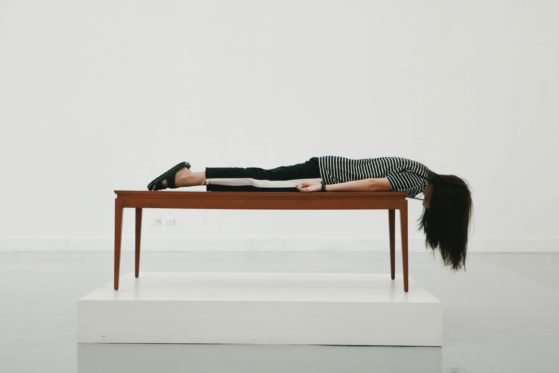We go to the spa, take a vacation, get a massage, get a tune-up and oil change for our cars, go for a nice walk, and many other single/short-term activities to maintain, rebalance, or get a bit of boost. So why are we not doing that with our mental health? That’s the idea behind Single-Session Therapy (SST). SST is a one-and-done, drop-in as needed type of delivery model that gives new meaning to therapy. Not everyone wants to commit to multiple sessions or long-term therapy over several months. And frankly, most of us are busy living our lives and tackling daily obligations. So SST removes some of that barrier and encourages us to treat mental health when we want it and when we need it, obligation and pressure free. Just drop in, talk, listen, learn, and leave, possibly forever.
Can one session be helpful?
Every culture has an idea or concept, in one form or another, that the inner essence of who we are can be knocked off balance and defiled. And the only way to restore balance and harmony requires some type of “purification” ritual. From Christianity to Judaism to Buddhism and to the Navajo and other indigenous beliefs – there exist purification rites and ceremonial acts in an attempt to re-establish “purity” and cultivate “spiritual” growth.
Wait, what?
You’re probably thinking right now that this is new-age, mumble jumble crap that you don’t believe in.
Well, let me help normalize it for you.
We all have secrets.
What do I mean by secrets?
I’m talking about the darker and more repressed parts of your life – things that you’re not proud of, things you’re ashamed of, intrusive thoughts and obsessions you wish you didn’t have, fantasies that distracts you from daily life, urges and impulses you feel, and on and on. You know what I’m talking about. The part of us that many of us try so hard to shut out and keep hidden from society. However, this comes at a cost – the cost of self-acceptance, self-knowledge, and self-growth.
If fact, studies show that there are dangers to secrecy and that keeping secrets can be bad for your overall health and is linked to increased anxiety, depression, rapid progression of disease, poor life satisfaction, and unhealthy relationships. What’s more, the research shows that the act of hiding secrets isn’t the real culprit – but more so that you have to LIVE with it and THINK about it
Secrets are like cancer – with the early stages being hardly noticeable or harmless – but when ignored and left alone, can metastasize to other parts of our lives.
We hold onto secrets in an abstract closet within dark corners of our minds with the hopes that no one will ever find them including ourselves. In a sense, we are mental hoarders to some degree. But those secrets accumulate as unseen clutter, much like a physical unkempt space. When it comes to managing our homes, offices, and other physical spaces, we understand the importance behind the chores of organizing, decluttering and cleanliness. Heck, even our physical bodies have a natural system to detox and cleanse itself. So, why are we not doing the same with our psychology and emotional health?
Stigma.
Fear.
Uncertainty.
Denial.
There are a lot of viable reasons, rationale and emotional risks involved.
Mental Hygiene
Mental hygiene is the art and science of proactive behaviors geared towards deliberately practicing, preserving and maintaining the mind and overall psychological wellbeing as to prevent the development of psychosis, neurosis, or other mental health disorders. This could be as simple as establishing a regular journaling routine, self-care practice, and other positive outlets. Prioritizing mental hygiene means making it a lifestyle – and not just as a reaction to stress or problems.
We’re holding onto more and more stress, emotions, and trauma — most of the time without realizing how much tension buildup it creates — until they are released – sometimes quietly and sometimes violently. One thing is for certain – sometimes we just need or want to let go – scream, yell, or cry.
The majority of the patients I have seen in my practice divulged things they never thought they could. This process often led to many benefits – where most of them experience a very cathartic sentiment. The act of unpacking and processing these secrets is often how healing begins. One by one. The accumulation of mental and emotional baggage gets released through expression and confession, if you will. Furthermore, most mental health issues stem from some sort of secrecy we’ve avoided and denied over a period of time. Meaning, by the time someone comes to therapy, the problem is already intricately embedded and deeply-seated into their daily lives.
So, as the analogy goes – we begin “peeling back the onion” — removing layers upon layers of psychological wounds and problems to engage in a dynamic journey of self-discovery and self-knowledge. And as the layers slowly fall away, we can finally to get to the core of our very being – where the hidden or forgotten parts begin to emerge and rise.
Single Session Therapy
Look, I understand that we can’t just talk about our deepest secrets, worries, and innermost thoughts to just anyone. Being completely transparent and grossly honest is terrifying – and truthfully, most people in our immediate social circle may not be ready for that kind of radical honesty. And what’s more, they WILL see you differently.

Here are some examples of confessions my patients have shared in therapy:
- I was sexually abused as a child.
- I cannot stop thinking about sex.
- I want to kill my parents.
- I fantasize about the females at work.
- I have random thoughts of hurting others every day.
- I only feel motivated to help sexy customers.
- I can’t pee in public restrooms because I feel self-conscious about others hearing me.
- I am the CEO of my company and I still have no idea what I want in life.
- I think of another woman when I have sex with my partner.
- I fantasize about people dying a horrible death.
- I daydream about getting a gun to shoot some people at school.
- I thought about killing myself.
Many of you would agree that these thoughts would be deemed by society as shameful and reprehensible — but nonetheless, they exist. So, unfortunately, it makes sense that we appropriately filter ourselves in a way that is mostly acceptable to the masses with the hopes of keeping these secrets at bay and without sacrificing so much of who we are in the process.
You’d be surprise to know that I’ve heard these types of confessions and thoughts from regular people, like you and me – some of which are from kids as young as 6yrs old – not criminals or serial killers or psychopaths as we might call them. Think of the consequences of denial and keeping these thoughts all bottled up – and how it can fester and linger. We live in a society with a long tradition of stigmatizing people for these types of obsessions, fantasies, and homicidal and suicidal thoughts – so many of us choose to not get support, to struggle in silence, to self-loathe and fight the battle alone.
Some people get by, some people don’t.
But here’s what I think: I think the best approach to rehabilitation, growth and transformations happens by directly addressing our problems head on. I think it’s better to talk about our problems, than leaving them unsaid. And we need a place that encourages a process for this to happen – for one to feel the intensity of it all.
It’s a myth that talking about these “dark” thoughts increases the likelihood of someone acting on them. It’s quite the opposite – bottling these types of thoughts and feelings can lead to more problems. Pain and suffering thrive in secrecy – it tends to get stronger when we actively deny it and hide it.
This is why I strongly advocate for people to attend therapy defensively for preventive care – even just to treat it like a one-time “confession” session. There is healing and transformative power through unearthing deep, hidden feelings and thoughts in a safe space – it serves as a way to remove mental clutter and release psychological pain. Having a space to divulge openly and completely without fear of judgment is highly needed to cultivate the following benefits:
- Self-reflection, self-acceptance, self-forgiveness and self-knowledge
- Restoring inner balance and relationship with ourselves
- Embodying humility
- Rapid growth in virtue and integrity through taking accountability
- Early intervention for prevention of bad habits or other destructive behaviors from forming
- Clears our conscience
- Better self-control through increased awareness of our mistakes, impulses and tendencies
Research confirms that confiding a secret can feel cathartic and relieving. What’s even more interesting, the same research found that the most helpful part of confiding a secret is actually the conversation that follows – where they get to process, receive emotional support, gain acceptance and forgiveness, and new insight and self-knowledge.
To Those Struggling in the Dark Side of Human Nature
I am here to tell you that you are not ALONE. You are NOT crazy. These thoughts don’t make you a BAD person.
You are NOT your THOUGHTS. Your thoughts DO NOT define you.
You CAN let them go.
Studies suggest that the average human being have more than 6,000 thoughts per day (https://www.healthline.com/health/how-many-thoughts-per-day). We don’t act on all of them, do we? Many of these thoughts come and go as fast as they came.
However, there’s a dark side to human psychology that many people don’t admit to or talk about – but they are implicitly all around us in movies, video games, books, social media, entertainment, and so on. I consider this dark side – as the richer, deeper part of us that is filled with so much information, lessons, and insight.
And you CAN leverage this “dark” side.
But you NEED to START telling YOURSELF the TRUTH.
Telling your secrets hinges on finding the right venue for divulging them – and one thing is undeniably clear – the best person to reveal secrets to is someone who can be nonjudgmental and can maintain a confidential and safe environment.
There is no denying the benefits of religious confessions and any type of open and truthful disclosure reduces stress while also helping us come to terms with our behaviors. A lot of research shows that confessions provide a practice for deep, reflective work that continuously shape us https://hts.org.za/index.php/hts/article/view/6560/19241. So, it’s not coincidental that many leaders, institutions and cultures encourage people to confess their transgressions. The beauty is that you do not have to be religious to benefit from confessions.
This is why offer SST. Think of these sessions as a no-holds barred, non-religious confession session that allows you to emotionally purge and hit the RESET button through divulging your innermost deepest secrets, thoughts, and pain in a nonjudgmental and confidential space. OR, if you just want to come in and talk about a current circumstance and find solutions – we can do that too. In the session, we engage in the underlying mechanism of confession through expressive communication and techniques by deciphering the emotional experiences into words, actions and stories to better process and understand them, so that they become less scary and menacing. These sessions are about acceptance, letting go and releasing the pressure and build up.
I will not judge you. I will not shame you.
My mission is to help you heal and experience the ultimate relief through radical honesty and acceptance.
Before you leave, consider asking yourself, “What am I carrying?”
Think of all the things that you are carrying – do you feel that? You CAN let it go.
Let’s talk.
About the Author
Albert Nguyen is a licensed psychotherapist in private practice. He specializes in providing an integrative and eclectic approach to mental health care that includes personal self-care, anxiety and depression, and peak performance in children, teens and adults. Reach out for more information on how he can be of service to you here.
Disclaimer: The topics and articles published on this website including text, graphics, videos and other materials are for informational purposes only and should not be substituted for professional medical advice.






